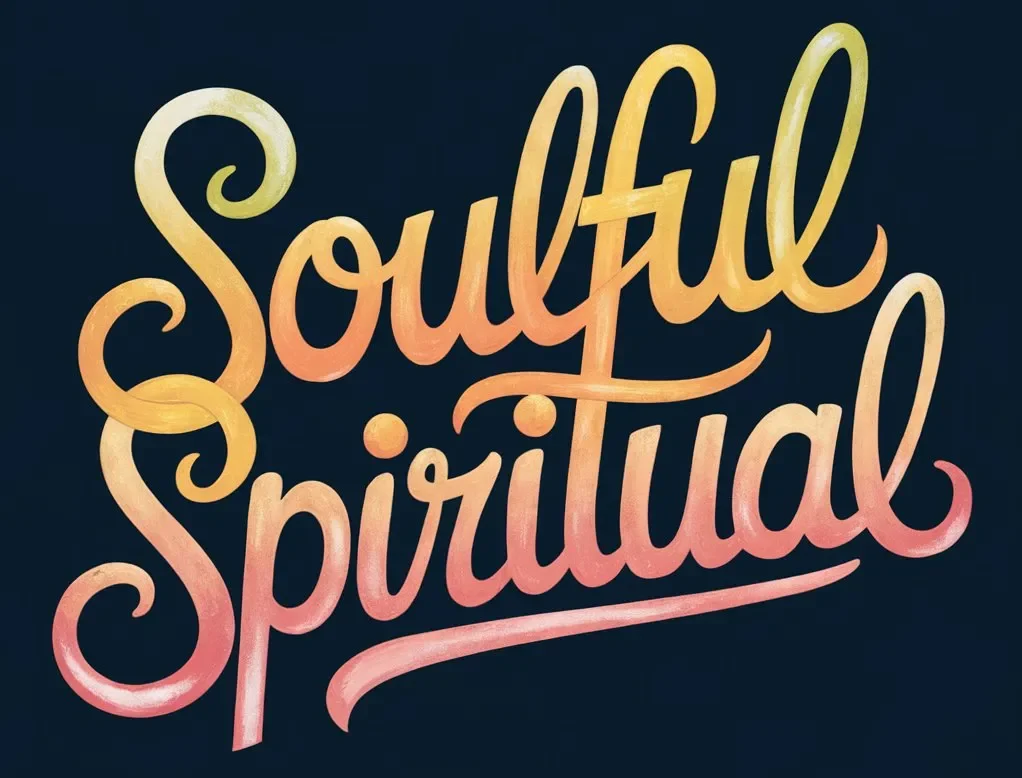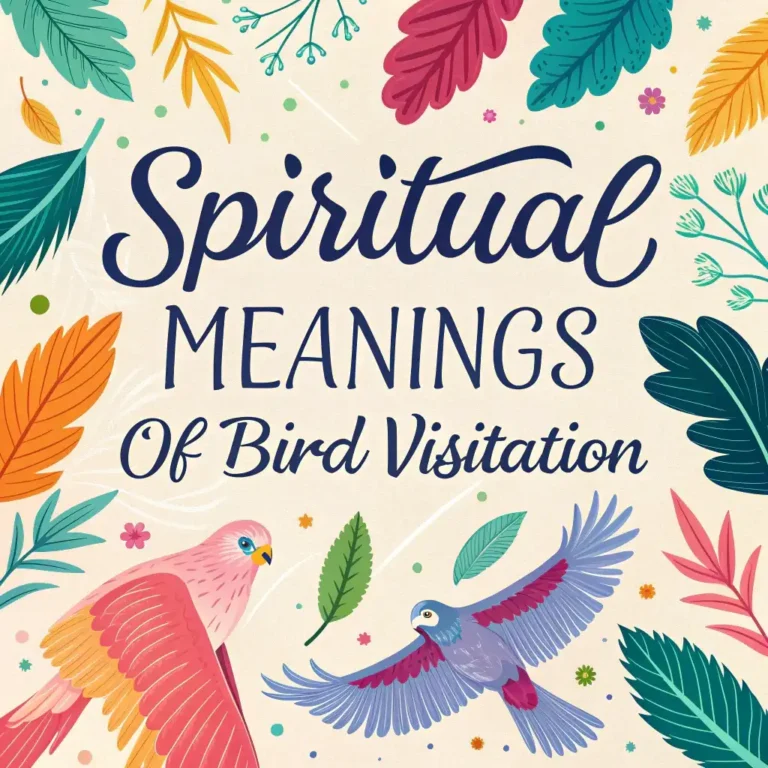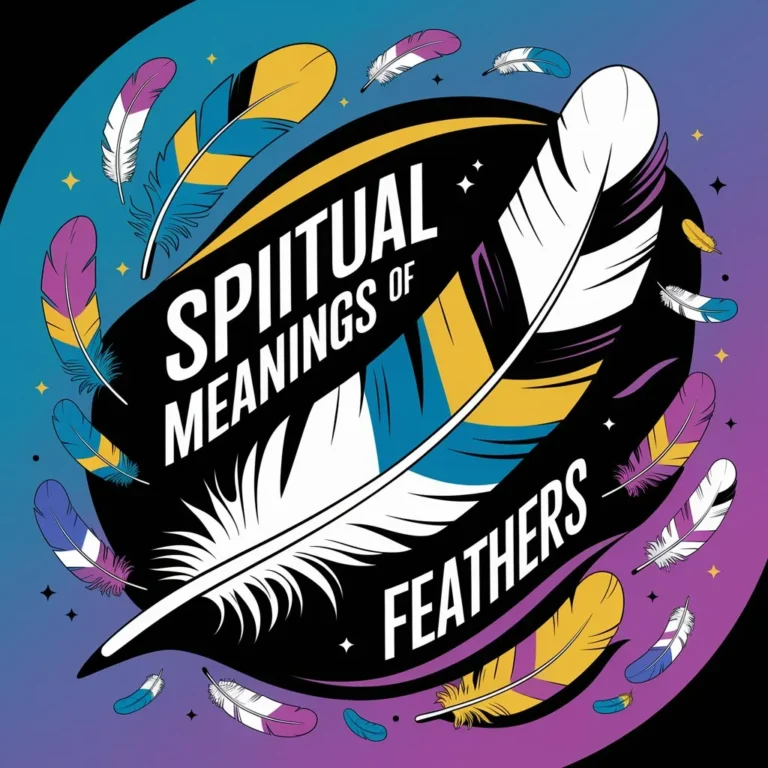Spiritual Meanings of Neck Pain: 11 Sacred Messages
Neck pain can signal more than just a physical issue. It may point to emotional blockages or unresolved conflicts in your life. This discomfort often relates to communication problems or feelings of being overwhelmed. Recognizing these signals is important for your personal growth and well-being.
Understanding the spiritual meanings behind neck pain can help you find clarity and guide you toward healing.
Exploring these messages can lead to self-discovery and a deeper connection with yourself. Pay attention to what your body is telling you, as it may open doors to important insights.
Key Takeaways
- Neck pain often points to unresolved emotional issues. It encourages individuals to address and share their feelings for healing.
- Repressed anger may show up as neck tightness, signaling the need to recognize and let go of buried emotions.
- Feelings of stress or loneliness can appear as neck pain, emphasizing the importance of evaluating one’s support network.
- Stress-related neck pain reminds us to practice self-care and relaxation techniques for emotional well-being.
- Communication issues can lead to neck pain, highlighting the necessity for open dialogue and better listening in relationships.

Emotional Blockages
Neck pain can indicate deeper emotional issues that may be affecting you. This discomfort may show unresolved feelings or conflicts. You may be holding back emotions that need to be expressed, which can lead to tension in your neck.
Identifying these emotional blockages is the first step to feeling better. Allowing yourself to confront and express these feelings can help release the tension, easing both your pain and emotional burden.
It’s important to seek support. Sharing your experiences can create connections and foster understanding.
As you work through this, take the opportunity to let go of what no longer helps you. This can create space for healing and a sense of belonging.
Communication Issues
Unresolved emotions can cause physical pain and impact communication. Neck pain may indicate difficulty in expressing thoughts and feelings.
You might notice that your body language doesn’t match your words, leading to confusion. Focus on improving your listening skills to connect better with others. Effective communication involves both speaking and truly hearing others.
Repressed Anger
If you feel tightness in your neck, it may signal repressed anger. This discomfort often occurs when you hold back emotions, leading to physical symptoms.
It’s important to acknowledge these feelings as they can help you heal.
Here are three signs of repressed anger:
- Frequent headaches or shoulder tension.
- Irritability or mood swings.
- Difficulty expressing your needs or feelings.
Recognizing these signs helps you connect with your emotions. By allowing yourself to feel and express these emotions, you can release that tightness and find inner peace.
Fear of Change
As you go through life, neck discomfort may signal a fear of change. Fearful thoughts can hold you back from accepting changes that promote growth.
Change can feel overwhelming, but it’s a natural part of life. Acknowledging this fear is the first step to healing. Recognize what holds you back, and be kind to your feelings.
Embracing change opens doors to new experiences and relationships that can enrich your life. You aren’t alone in this; many face similar fears.
Lack of Support
Neck pain can signal a lack of support in your life. This discomfort may arise from feelings of being overwhelmed or isolated. It can be a prompt for you to examine your relationships and focus on self-care.
Here are three steps to consider:
- Assess Your Support System: Think about the people in your life. Do they lift you up or drain your energy?
- Build Supportive Connections: Look for individuals who motivate you and offer encouragement. Don’t hesitate to reach out to them.
- Practice Self-Care: Engage in activities that help you feel grounded. These can include meditation, journaling, or spending time outdoors.
Strained Relationships
When you feel tension in your neck, it may indicate stress from strained relationships. This discomfort often comes from unresolved issues or a lack of emotional connection with loved ones.
Recognizing this is important for your well-being. Nurturing your relationships can lead to healing and happiness. You can promote understanding and kindness by communicating openly.
Seeking support is okay; it helps build emotional strength through connection. Focus on mending what’s broken and deepening your bonds.
Embrace the journey of healing, knowing you aren’t alone in your quest for belonging and peace in your relationships.
Overwhelm and Stress
One common cause of neck pain is stress. Juggling responsibilities can feel overwhelming, leading to physical tension.
Here are three signs that stress may be causing your neck pain:
- Tightness in your neck and shoulders after a long day.
- Frequent headaches that disrupt your focus.
- Trouble sleeping because of racing thoughts.
To relieve this pain, try mindful breathing. Take a moment to breathe deeply and release tension.
This practice helps you reconnect with your body. Remember, you aren’t alone in this. Taking care of yourself fosters a sense of connection and belonging in our shared experiences.
Need for Self-Expression
The need for self-expression can show up as physical discomfort, like neck pain.
When you hide your true feelings or creative urges, your body can hold onto that tension. This discomfort signals that your authentic self wants to be heard. You may feel an urge to share your thoughts, talents, or emotions, but something stops you.
This pain invites you to explore what you truly want to express.
Try journaling, painting, or speaking your mind to relieve that pressure. Engaging in these activities can ease your neck pain and help you reconnect with yourself.
Allowing your voice to come forward is an important step toward healing and feeling connected.
Unresolved Grief
Unresolved grief can show up in your body as physical symptoms, such as neck pain. This pain may indicate a need for emotional healing. It signals that you should pay attention to your feelings and the experiences behind them.
Here are some steps to help you manage your grief:
- Acknowledge Your Feelings: Allow yourself to feel your emotions without judgment.
- Express Yourself: Write in a journal or talk to a trusted friend about your feelings.
- Seek Support: Consider joining a support group or speaking with a therapist.
Taking these steps can help lighten your emotional load and create space for healing. Remember, you aren’t alone on this journey.
Poor Boundaries
Poor boundaries can lead to physical discomfort, such as neck pain. This pain often arises when you feel overwhelmed by the needs of others, causing you to neglect your own needs.
It’s important to recognize this discomfort as a signal to practice self-advocacy.
Understanding your worth allows you to set clear boundaries. This helps you build a healthier relationship with yourself and others.
It’s essential to feel comfortable saying “no” or asking for space. Prioritizing your own needs isn’t selfish; it actually strengthens your connections with others.
By respecting your own limits, you foster deeper relationships based on respect and understanding. This approach helps you thrive in your interactions and promotes your emotional well-being.
Spiritual Awakening
During a spiritual awakening, you may feel neck pain. This pain can happen as your body adjusts to significant changes. It often signals your spiritual growth and personal transformation. Your body is releasing old patterns and accepting new energies.
Here are some points to consider:
- Increased Awareness: You start to notice your thoughts and feelings more. This awareness can lead to physical discomfort.
- Letting Go of Burdens: Neck pain might mean you’re releasing emotions that no longer help you.
- Aligning with Your True Self: As you connect with your true purpose, your body may respond to these changes.
Embrace your journey. This experience is a vital part of your growth. You aren’t alone in this transformation.
Frequently Asked Questions
Can Neck Pain Indicate a Specific Spiritual Issue or Blockage?
Neck pain may signal energy blockages linked to unexpressed emotions. Recognizing these feelings and finding ways to express them can lead to healing. This process helps you connect more deeply with yourself and improve your relationships. Addressing emotional issues can reduce neck pain and enhance your overall well-being. Embrace the journey of self-discovery and emotional release for a healthier life.
How Can I Use Meditation to Address Neck Pain?
To reduce your neck pain, practice mindfulness and visualization. Imagine soothing energy flowing through your neck and easing tension. Focus on this moment, connect with yourself, and find inner peace.
Are There Specific Crystals for Healing Neck Pain Spiritually?
Yes, specific healing crystals such as amethyst and lapis lazuli can help with neck pain. These crystals promote relaxation and balance. They can make you feel more connected and supported during your healing process. Trust your intuition when choosing crystals that resonate with you.
What Role Does Diet Play in Spiritual Neck Pain?
Diet significantly impacts your overall health and well-being. By making simple changes to your diet, you can help your body heal. A balanced diet can improve your physical health and strengthen your connection to yourself and your spirit. Eating wholesome foods allows you to feel better and enhances your sense of well-being.
How Can I Connect With My Higher Self to Alleviate Neck Pain?
To connect with your higher self and reduce neck pain, try simple mindfulness techniques like meditation and deep breathing. Focus on aligning your energy. Allow yourself to feel grounded and centered. This practice can promote healing and help you feel more connected.

Clio is a spiritual writer and seeker who shares her insights and knowledge on Soulful Meanings. With a passion for exploring the mysteries of the universe, Clio helps others connect with their higher selves and live a more authentic life.







